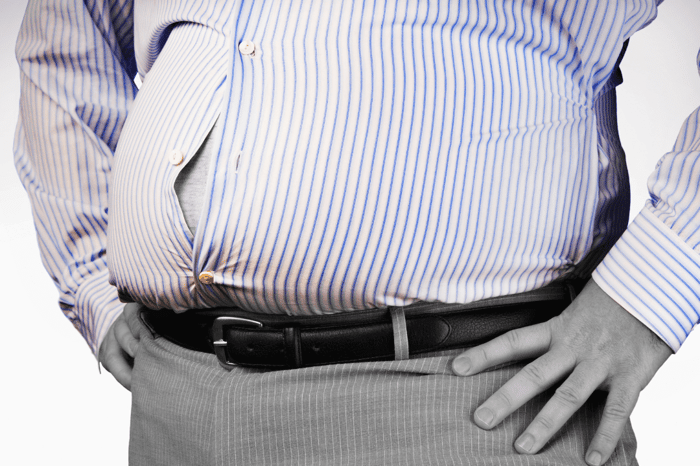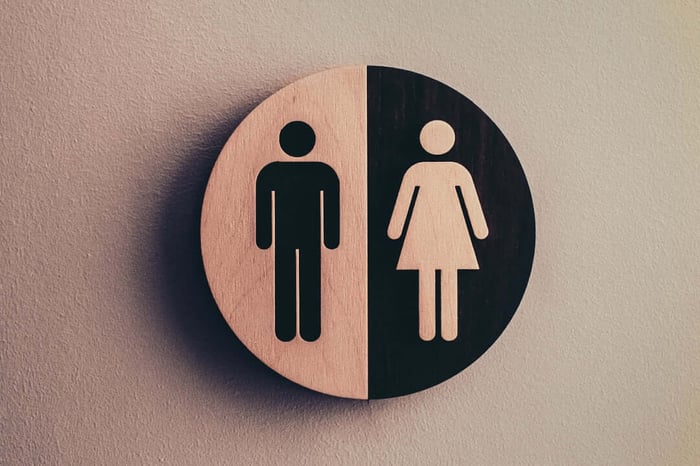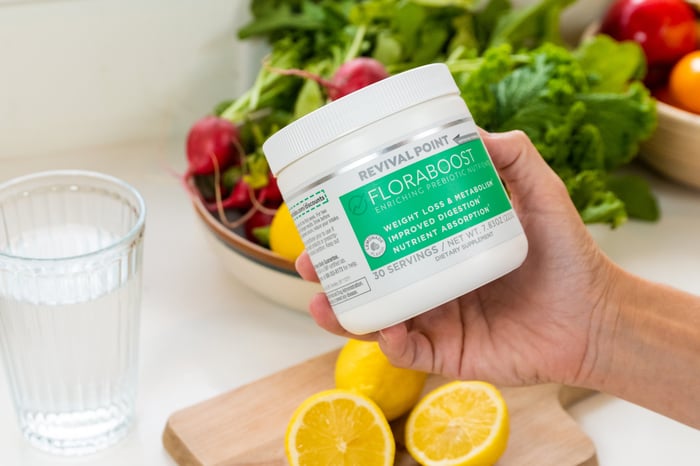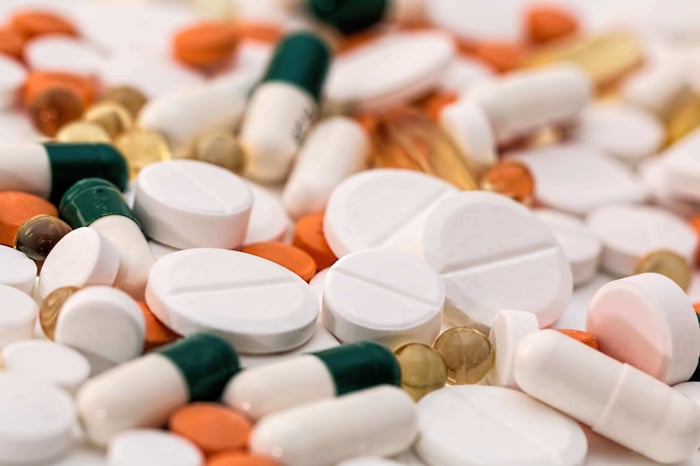The benefits of taking probiotics have been well-documented for both men and women. They improve gut health and immune system health, and have virtually no side effects. The best probiotics for men, though, also offer some specific functions that keep guys healthy and happy in all the ways that count.
But in order to find the best supplement for you, you need to understand what probiotics are, how to know when you need them, how they play an active role in support men's health Here’s our guide to finding the right one for you.
What Are Probiotics?
Probiotics are living microorganisms found in your gut. They’re good bacteria that help to keep your gut microbiome healthy and working as it should.
You get probiotics from two main sources: the foods you eat and probiotic supplements. Eating fermented foods will increase the number of good bacteria in your gut, and adding i a high-quality probiotic supplement to your daily diet to keep your digestive system functioning at its best.
Why Should Men Take Probiotics?
Probiotics can benefit everyone. But men can gain some specific health benefits with the addition of a probiotic supplement. The right probiotic for men will provide a wide range of benefits, from the male reproductive system to the colon.
Here are some excellent reasons to include a probiotic in your daily intake:
1. Some Probiotics Strains May Help Increase Testosterone Levels
Once you hit the age of 30, your testosterone levels begin to decrease naturally. This can cause a number of unpleasant side effects, including reduced sperm count (a downer if you’re trying for a baby), low libido, poor energy levels, lowered cognitive function, reduced muscle mass, and increased body fat.
Previous studies done on mice indicated that probiotics have a positive effect on testosterone levels. The study show that probiotics themselves do not directly increase testosterone levels in men. However, certain strains of probiotics have been found to have potential indirect benefits for testosterone production. Some studies suggest that specific probiotic strains, such as Lactobacillus reuteri, may help reduce the production of an enzyme called aromatase, which converts testosterone into estrogen. By inhibiting aromatase activity, these probiotics may help maintain higher testosterone levels in men. (1)
Improved Sexual Health
This one comes as a result of increased testosterone, as mentioned above, which improves the libido, the sperm count, and your overall energy levels.
There’s also evidence to suggest that supplementing with probiotics can help to reduce your chances of suffering from erectile dysfunction.
But it’s also just much easier to be intimate or have a bit of fun with your significant other when you’re feeling strong and comfortable, rather than bloated, sluggish, and sore!
3. Better Prostate Health
Prostate cancer is the second most common type of cancer after skin cancer, and research is confirming that bad gut bacteria can drive the growth of cancerous cells in the prostate.
Not only does supplementing with probiotics (and prebiotics) help to reduce your chances of being the one in 9 men that will get prostate cancer in their lifetime, but it also lowers your risk of developing UTIs and an enlarged prostate.
4. Improved Bowel Function
This is true for both men and women, but improved bowel function is something that’s definitely beneficial to everyone.
The beauty of probiotics is that they help with whatever issue you’re having at the time. If you struggle with frequent constipation, probiotics can help to ease that. On the other hand, if diarrhea is something you struggle with often, probiotics will fix that up for you.
You should find that your bowel movements become more regular, less painful, and you don’t have to worry about either straining yourself or running off to the bathroom in the middle of a conversation!
5. Maintain a Healthy Weight
Another one of the side effects of low testosterone is weight gain, which is made worse by poor gut health. Add to that feeling sluggish and devoid of energy, and weight gain can happen quickly.
Probiotics are also known to help regulate your weight by improving your gut health. Certain probiotics are formulated with weight loss in mind, but in general, whichever one you choose should naturally help you shed some pounds by improving your digestive system.
6. Boosted Immune System
There’s a saying that good health begins in the gut. It’s quite true, because when your gut microbiome is out of whack, your immune system is naturally lowered.
Improving your gut bacteria with the use of a high-quality probiotic supplement automatically boosts your immune system. That means you’ll naturally be more resistant to the flu, stomach bugs, and other immune system problems.
7. Increased Energy Levels
When you feel good, your body is healthy and happy, and your immune system is working as it should, it’s natural that your energy levels increase.
But probiotics also play a huge role in helping your digestive system to absorb nutrients from the food you eat. The more nutrients you absorb, the more energy you have at your disposal.
Signs You Need Probiotics
One or two of these signs on their own is probably not a cause for concern. But if you tick multiple boxes and you’ve been experiencing these symptoms consistently, it could be that your gut health is to blame.
Digestive Issues
Bloating, unusual gassiness, and abdominal discomfort are the most common digestive symptoms. You may also find that you’re unusually constipated or suffering from diarrhea for no apparent reason.
An imbalance of good and bad bacteria—in other words, too much bad bacteria in the digestive system—can lead to bouts of irritable bowel syndrome (IBS), upset stomach, and pain.
Reduced Sexual Performance
As mentioned above, a lack of good probiotic bacteria in the gut can have adverse effects on your testosterone levels. In turn, this can lead to low libido, erectile dysfunction, and a low sperm count.
Severe Sugar Cravings
Suddenly after all of the sweet snacks in the house? Poor gut health could be to blame! If you’re not usually a sweet-toothed kind of person, this could be a big red flag that your gut bacteria is imbalanced.
Weak Immune System
Your gut health has a direct impact on your immune system. If you find that you’re getting sick more often, can’t seem to shake cold and flu symptoms, and just feel weak and unwell, it could be a sign that you need extra good bacteria in your gut.
Skin-Related Allergies
Skin allergies are often a result of food allergies or intolerances. When your gut health isn’t optimal, your body may not be absorbing all the nutrients it needs, causing skin-related reactions.
You’ve Recently Had Food Poisoning
Food poisoning can easily shift the balance of good and bad bacteria in your gut. It can take weeks or months for it to get back to normal. Or, in some cases, it just never quite does. Taking a probiotic supplement is often the best way to get it balanced again.
You’ve Recently Taken An Antibiotic
Antibiotics are designed to wipe out all of the bad bacteria that’s making you sick. The problem is… antibiotics wipe out the good bacteria as well. Even if you aren’t suffering from the common antibiotic-associated diarrhea, it’s a good idea to use a probiotic to strengthen your system again.
You Have Non-Specific Poor Health
Brain fog, feeling unwell without being able to pinpoint how, and general irritation or bad moods can also be a sign of a gut bacteria imbalance. If you haven’t been able to figure out a reason behind your poor health, this could be it!
The best probiotic for men should address every one of these issues and have you feeling like a million bucks after a few months of using it.
The Best Synbiotic Combo: Click Here Now to Check It Out
What’s the Best Probiotic for Men?
It’s a difficult task to pinpoint the best probiotic for men. It depends on your goals, your needs, and your current diet, amongst other things!
The key is to consider your current health status, your recent medical history, and what you want to get out of using a probiotic supplement.
There’s no specific, overall “best probiotic for men” that will solve all of your problems. It’s a case of doing a bit of research to figure out which would be best for YOU.
How to Choose the Right Probiotic for You
So, how DO you go about choosing the right one for you? Every person is different, and so is every probiotic. From various bacterial strains to a range of health benefits, here are a few guidelines on selecting a probiotic supplement:
- Carefully chosen strains.
Not all probiotic strains are made equal. Probiotics including a combination of different strains work best for overall health. Double check the ingredients before you buy to make sure that they’re being transparent about which strains are used.
It’s also a good idea to check up on substrains. For example, lactobacillus rhamnosus GG is an excellent substrain for IBS. On the other hand, lactobacillus rhamnosus GR-1 is a much-studied substrain for women’s intimate health. The same, but different!
- A decent CFU count.
CFUs (colony-forming units) are another name for live bacteria. You can expect to find between 1 billion and 50 billion CFUs in any given probiotic supplement.
However, this doesn’t mean that you’ll be getting that exact amount every time you pop one of the pills. Live bacteria can be destroyed if the product is stored in heat or high humidity, or they can even be destroyed by your own stomach acid!
But that doesn’t always mean a high CFU is better. Rather, choose one that’s shelf-stable, humidity-resistant, and manufactured to be strong enough to withstand stomach acid.
- Ease of storage.
Some probiotics need to be stored in the refrigerator. Others (called shelf-stable) can be kept in a cupboard, as long as they’re out of direct sunlight and humidity.
What works best for you depends on you. But you never quite know if refrigerated probiotics have been out of cold storage during the transporting process, making them less effective.
- Dietary needs.
Most probiotics are dairy-free, gluten-free, and vegetarian. Some of them are even vegan, although it’s best to check carefully before you buy as some use gelatin capsules.
The Best Probiotic for Men
It’s tough to nail down the absolute best probiotic for men, but we’ve listed 5 superb options that are well worth considering.
Best Strains: Floraspring
Floraspring is an excellent choice. Not only is it well-known for its weight loss properties, but it’s great for boosting the immune system and bringing the gut microbiome back into harmony.
It contains 5 super strains, a potent mix that’s designed to supercharge every element of your digestion and immune system. In addition, there are 9 booster strains to fill in any gaps.
Free from allergens, third-party tested, and with 25 billion CFU in each dose, it’s a great dietary supplement if you want to bring your metabolism back into alignment.
CFUs: 25 billion
Strains: 5 super strains, 9 booster strains
The Best Probiotic for Men: Up To You
There’s really no such thing as the best probiotic for men, because all men are different. It’s a great idea to shop around a little, but do your research to find a probiotic that offers everything you need.
Also, keep in mind that it can take 3 to 4 months for a probiotic supplement to really start working properly. Once you’ve chosen your probiotic carefully, stick with it for at least 3 months before you conclude that it’s not working and you should try another one.
Here’s to your improved health!
References:
1) Poutahidis T, Springer A, Levkovich T, Qi P, Varian BJ, Lakritz JR, Ibrahim YM, Chatzigiagkos A, Alm EJ, Erdman SE. Probiotic microbes sustain youthful serum testosterone levels and testicular size in aging mice. PLoS One. 2014 Jan 2;9(1):e84877. doi: 10.1371/journal.pone.0084877. PMID: 24392159; PMCID: PMC3879365.




